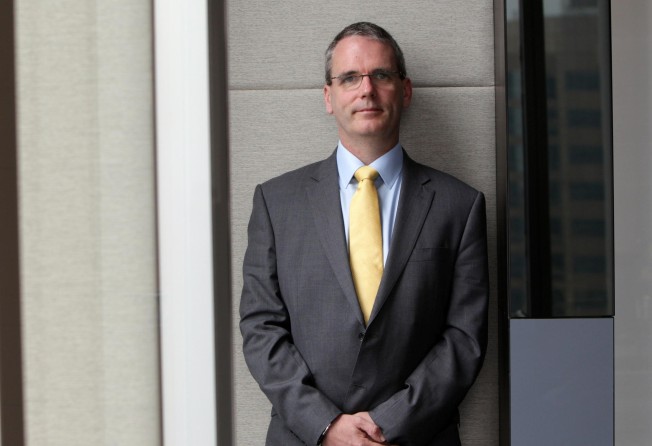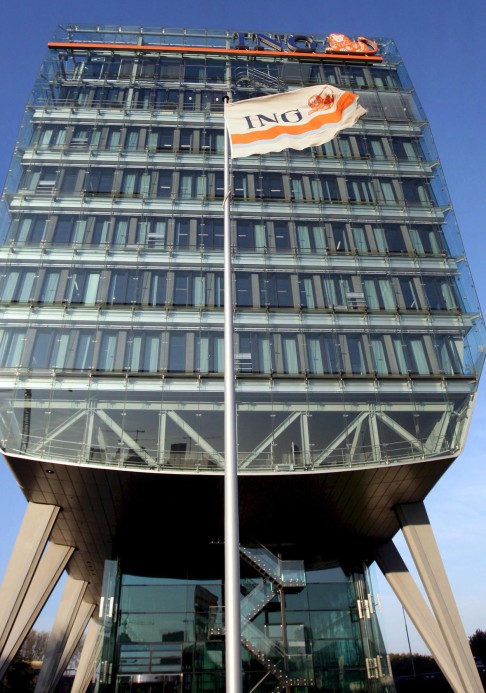ING has three-pronged plan for boosting commercial banking in Asia
Mark Newman, the Dutch group's commercial banking boss in region, sets lofty goal that hinges on inroads in China, Japan and South Korea

Dutch financial services group ING has a big question for Asia - how to earn more money from its commercial banking business in the world's fastest-growing economic region? The answer, in short, from its top regional boss is you have to get three markets right: China, Japan and South Korea.
Mark Newman, chief executive for ING Commercial Banking in Asia, told the South China Morning Post he had raised ING's internal business target to expand the contribution from its Asia commercial banking to global commercial banking business to 20 per cent of its income from the current 13 per cent. Global commercial banking income accounts for 50 per cent of total group income, with the remainder coming from retail banking.
"I hope to see that figure (13 per cent) grow closer to 20 per cent in the next few years," said Newman, adding that commercial banking globally makes up about half the group's total profit before tax; the other half comes mainly from its Europe-focused retail banking business.
To raise the profit contribution target to 20 per cent is not an easy mission for any foreign bank in Asia due to the extremely competitive market and strong growth of home-grown players.
In the past few years, particularly since the 2008 global financial crisis that upended the global financial industry landscape, many international banks have been forced to scale back their business in Asia to refocus on their home markets, due to weak capital bases and tightening market liquidity.
"Asian banks now definitely provide a lot of competition. I will say many Singapore and Japanese banks are very aggressive," said Newman, who worked for ING in various senior positions in Asia for about two decades, previously in Hong Kong and now based in Singapore.
"Our focus in Asia is to serve European clients here and you know Asian companies are also expanding very aggressively, so we already have an Asia desk in Europe," said Newman, adding that one of ING's main services for Asian clients was to help them to set up their corporate treasury centres in Europe.
Newman noted such a two-leg strategy - to serve European clients in Asia and to bring Asian clients to Europe - won big support from ING's headquarters in Amsterdam and the Dutch bank would not scale back from its commercial banking business in Asia as some other European and American banks have done.
"We want to be their (Asian clients) primary bank and our top markets in Asia will be Greater China, Japan and South Korea," said Newman. The Greater China region refers to mainland China, Hong Kong, Macau and Taiwan.
Newman said he saw strong interest from ING's mainland clients "to expand through mergers and acquisitions in a more diverse range of sectors including industrial, energy, consumer, real estate and TMT (technology, media and telecommunications) sectors, just to name a few".
"China's demand for energy remained strong, [an] imperative to upgrade its industrial capabilities. The industrial and consumer sectors were also very active, followed by the TMT sector. Europe is more advanced and offered a lot of value in these areas to Chinese corporates," he added.
Some Japanese and Korean clients are looking at opportunities in the same sectors where Chinese investors also want to pour in capital, increasing competition from the three countries but also creating more business opportunities for banks, he said.
In fact, Newman's ambition to raise ING's business contributions from Asia comes at an important time for the bank. ING is poised to completely repay by early next year the bailout it received from the Dutch government during the 2008 crisis.
ING is also keen to offload other non-core assets so that it can focus on the group's commercial banking business. In May, Singapore's state investor Temasek teamed up with RRJ Capital, an Asian investment house, to invest €1.27 billion (HK$13.4 billion) in an insurance subsidiary of ING. In October 2012, ING sold its Hong Kong, Macau and Thailand insurance businesses to Hong Kong tycoon Richard Li Tzar-kai's Pacific Century Group for US$2.14 billion.
Follow the reporter on Twitter: @george_chen
